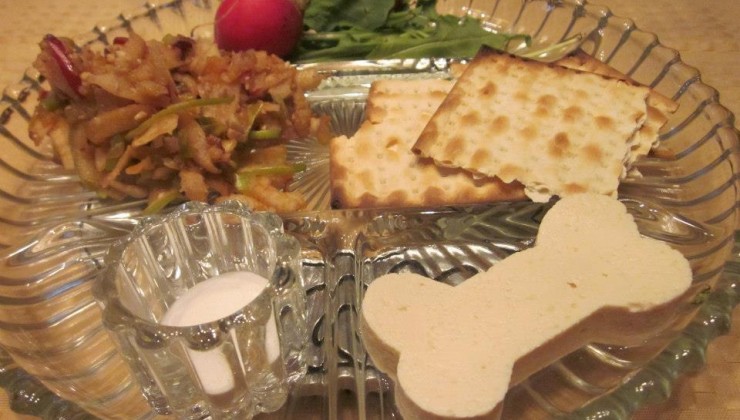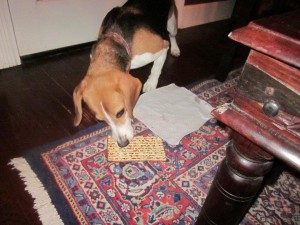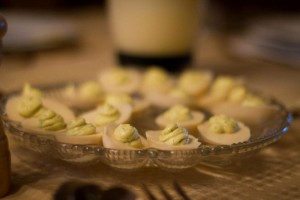
Vegan Passover: honoring all those enslaved
 Besides family and good food, my earliest memory of Passover was being struck by the evils of slavery. I couldn’t wrap my mind around the idea that an entire group of people could be enslaved for the simple fact of being different, whether that difference was based on religion, ethnicity, sexuality, or race. Even as I have grown older, the idea of hating and oppressing another group based on differences has continued to confound me.
Besides family and good food, my earliest memory of Passover was being struck by the evils of slavery. I couldn’t wrap my mind around the idea that an entire group of people could be enslaved for the simple fact of being different, whether that difference was based on religion, ethnicity, sexuality, or race. Even as I have grown older, the idea of hating and oppressing another group based on differences has continued to confound me.
The Passover story always had a happy ending, though. The Jews escape persecution and every year we honor and retell the story, so that we don’t forget and ideally are inspired to fight for all other groups who are being oppressed or enslaved.
Around this time of year four years ago, I had a discussion of Passover with a group of friends who are, like myself, Jewish and vegan. The discussion centered around how difficult it can be to attend seders where the dinner table is littered with the body parts of nonhuman animals. Being vegan, we not only abstain from eating meat, dairy and eggs, we also abstain from the use of all animals, whether that be for food, clothing, entertainment or animal experimentation.
We decided to create our own Passover tradition with a vegan seder, or “veder.” We have chosen to include all other animals into our moral sphere, just as we strive towards including all other groups of humans.
Each year, old and new friends come to our dinner table and we share all of the traditional Jewish foods like brisket, potato latkes, matzoh ball soup, kugel, gefilte fish and more, all veganized, of course. And we read from our very own haggadah, which not only retells the story of the Jews’ escape from the Pharoah, but also includes other animals. We tell the story of the “dairy” cow who, having given birth to twins overnight, hid one from the farmer since she knew her babies were always taken away from her so humans could have her milk.
We tell the story of our beagles, Frederick and Douglass, who were rescued from an animal testing lab. They spent their first five years living in a cage, having all manners of cruel experiments done to them, without their consent.
We not only honor their stories, but those of the billions of companion animals, farmed animals, fur-bearing wild animals, captive marine animals, and others who will never emerge yokes of oppression by humans.
Just as we strive to eliminate racism, sexism, homophobia, and other forms of discrimination from our lives, we too should strive to erase speciesism, the belief system that humans are superior to other animals, and hence we can eat and use them at our discretion. As the Passover story shows, when a group of people believe that they are superior to another, all manners of violent behavior ensues.
Our deepest Jewish values of justice, compassion, and fairness compel us to constantly expand those who we include in our moral sphere. The Passover story is a reminder that slavery still exists all over the globe and billions of those enslaved are nonhuman animals. It also reminds us that we have an obligation to use our freedom and lives to end all forms of slavery. As a people who have endured oppression for centuries, it is vital do everything in our power to fight against all forms of oppression. Let us each reflect on how we can be more inclusive of all humans and nonhumans, and start by moving towards a vegan ethic.
*All photos by Gene Blalock.
Comments
- Vegan Passover Menu: Some Ideas | meshell in your city. - […] The Thinking Vegan’s Vegan Passover […]
*




Leave a Reply